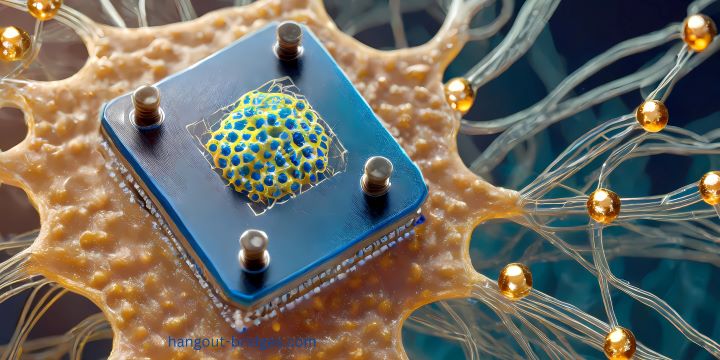Key Takeaways
- AI is revolutionizing drug discovery by significantly reducing the time and cost involved.
- Machine learning algorithms help identify potential drug candidates with higher precision.
- Despite its benefits, integrating AI in drug discovery poses several challenges, including data quality and regulatory considerations.
Table of Contents
- Introduction
- The Role of AI in Drug Discovery
- Recent Innovations in AI-Driven Drug Discovery
- Challenges and Limitations
- Future Prospects
- Conclusion
Introduction
Drug discovery has traditionally been a resource-intensive and time-consuming process involving laborious laboratory experiments and extensive trial-and-error approaches. By utilizing AI drug discovery, pharmaceutical companies can cut costs and the time required to bring new treatments to market. According to a study by Nature, leveraging AI can reduce drug discovery time by as much as 70%, a transformative change in an industry where time is often measured in decades. This article delves into how AI reshapes drug discovery, highlighting recent innovations, challenges faced, and prospects in this cutting-edge domain. AI drug discovery now sits at the forefront of pharmaceutical research, promising improved outcomes and higher efficiency in developing new medications, which could have far-reaching implications for public health globally.
The Role of AI in Drug Discovery
Advanced algorithms can sift through vast data to identify potential drug candidates, predict their behavior, and optimize their properties with unparalleled precision. By leveraging machine learning, scientists can develop predictive models that surpass traditional methods’ accuracy, enabling more targeted and effective drug design. In essence, AI reduces the reliance on inefficient trial-and-error approaches, replacing them with data-driven, statistically sound methodologies. This shift expedites the drug discovery process and enhances the accuracy with which researchers select viable candidates for further development. Moreover, AI can integrate multiple data sources, from genetic data to clinical trials, providing a more comprehensive, holistic view that was previously unattainable. The synergistic effects of these capabilities are speeding up innovation and improving the outlook for patients awaiting new therapies.
Recent Innovations in AI-Driven Drug Discovery
AI-driven platforms can now perform various complex tasks, such as molecular docking and toxicity prediction. One notable innovation is using deep learning techniques to predict the 3D structures of proteins, which is instrumental in drug design. Understanding the intricate 3D shapes of proteins allows researchers to design drugs that fit perfectly, much like an essential fitting into a lock. This capability is crucial for identifying drug targets and potential off-target effects, thus making the drug discovery process more efficient and safer.
Another exciting development is the integration of AI with high-throughput screening to evaluate the efficacy of thousands of compounds rapidly. This technology allows for quick assessment, accelerating the initial phase of drug discovery and substantially increasing the chances of identifying promising candidates. Furthermore, AI’s ability to analyze and interpret vast datasets enables the repurposing of existing drugs for new therapeutic uses, thereby optimizing the lifecycle of pharmaceutical products and reducing costs associated with developing entirely new treatments. These innovations open new horizons and possibilities for medical research and treatment strategies.
Challenges and Limitations
Despite the promising advancements, integrating AI into drug discovery has been challenging. Data quality and quantity remain significant hurdles. AI algorithms require vast amounts of high-quality, well-curated data to function optimally, which is often a bottleneck. In many instances, the available data could be more cohesive, structured, or consistent, posing significant challenges for machine learning models regarding accuracy and reliability. Moreover, the regulatory landscape for AI-driven drug discovery is still evolving, posing additional challenges for widespread adoption. Regulatory bodies are developing rules and criteria for validating and approving AI-generated drug candidates, which is a challenging and continuous endeavor. Compliance with these evolving regulations is crucial, as it directly impacts the ability to bring AI-discovered drugs to market. Researchers and companies must stay abreast of regulatory changes to ensure innovative treatments can be safely and effectively delivered to patients.
Additionally, issues such as algorithm transparency and interpretability are crucial challenges. They ensure the critical importance of understanding and verifying AI decisions, especially in situations where human lives are in danger. The need for transparency is paramount to gaining the trust of both regulators and the public. Researchers need to focus on developing AI systems that are not only strong but also able to be explained and held accountable. These considerations are essential for AI’s ethical and effective integration in drug discovery.
Future Prospects
The outlook for AI in drug discovery appears very optimistic. Due to ongoing progress in both machine learning algorithms and computational power, AI will have a more prominent role. Industry, academia, and regulatory bodies must work together to address current challenges and maximize the benefits of AI. The importance of data sharing, interdisciplinary collaboration, and open science cannot be overstated in this context. AI can discover new drugs, cut expenses, and enhance the efficiency of potential new medicines. The field will be revolutionized by emerging technologies like quantum computing, which offer unparalleled computational power to solve complex biological problems beyond our current capabilities. Additionally, the personalized medicine approach, where treatments are tailored to individual genetic profiles, is likely to benefit immensely from AI-driven insights. It could lead to more effective and customized therapeutic options significantly improving patient outcomes.
Conclusion
AI is undeniably a game-changer in drug discovery. While challenges remain, the prospects for AI in drug discovery are immense. Continued innovations and collaborative efforts will ensure that AI reaches its full potential in transforming drug discovery. We anticipate a future in which AI will be critical in creating new medications, resulting in quicker, more affordable, and more successful therapies for different illnesses. Integrating AI into drug discovery is a technological advancement and a paradigm shift that promises to enhance health outcomes and save lives globally.









